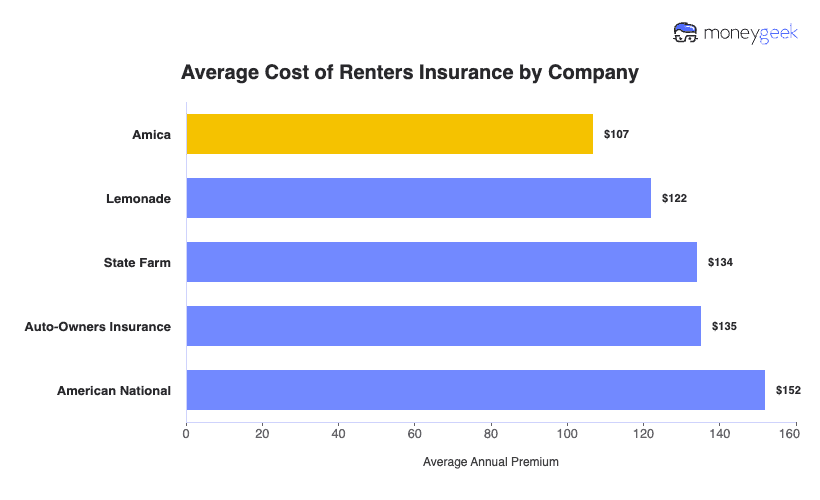Renters insurance costs an average of $15 per month or $182 annually for a policy with $20,000 in personal property coverage, $100,000 in liability coverage and a $1,000 deductible, according to MoneyGeek's rate analysis. That's less than 50 cents per day for financial protection.
Your actual premium depends on where you live, the coverage amount you choose and personal factors such as your credit score. Most renters pay between $10 and $22 monthly.









